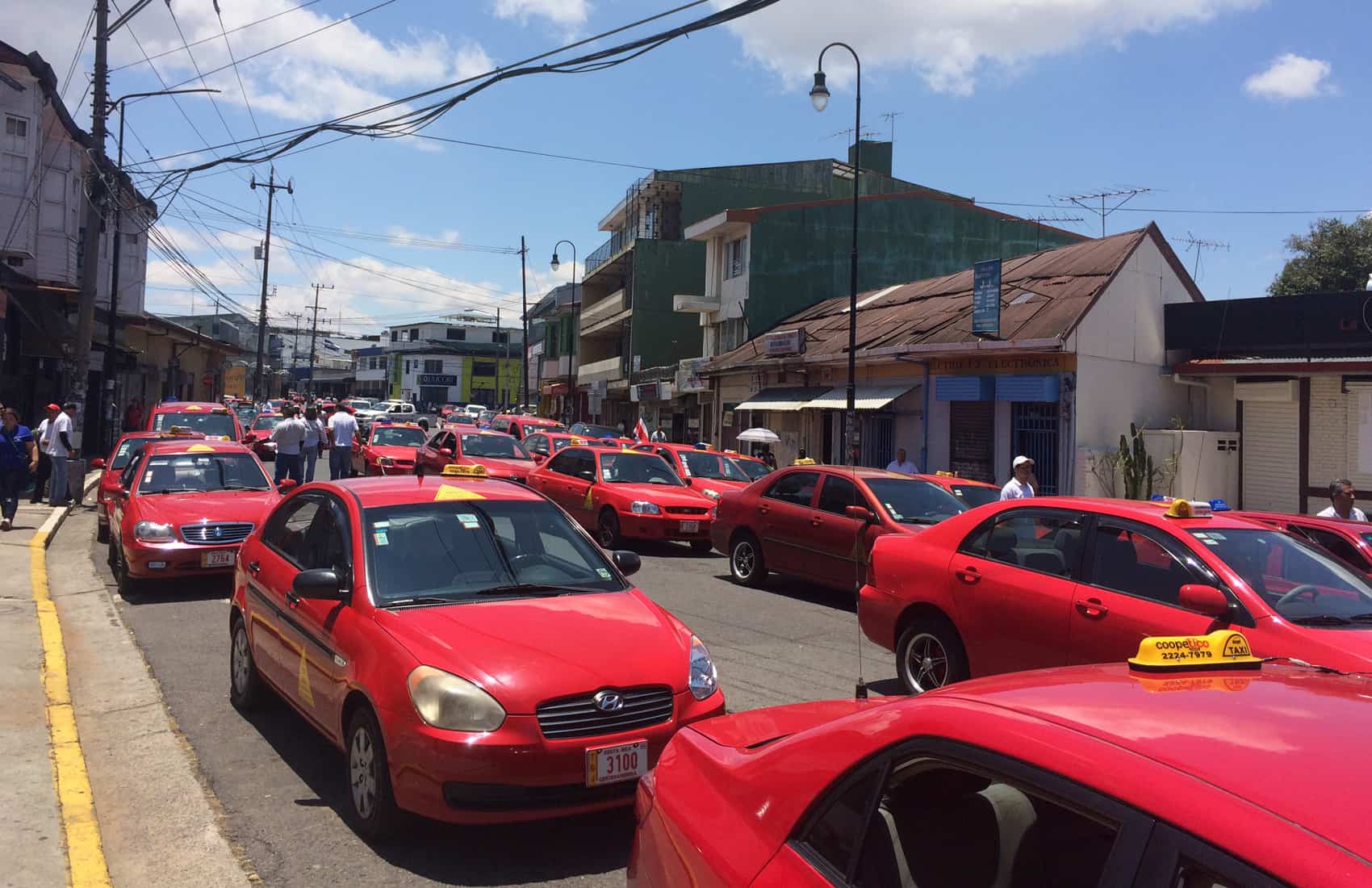Hundreds of taxis blocked Second Avenue and the streets surrounding the National Assembly in San José Thursday morning to protest a bill that could legalize Uber in Costa Rica. The “Collaborative Mobility” bill would regulate ride-sharing and ride-hailing services in Costa Rica and would require a 5 percent tax on all transactions, among other rules.
During a forum Thursday, the bill’s primary author, Ruling Citizen Action Party lawmaker Franklin Corella, argued that the bill would improve transportation options in urban areas, contribute to the country’s carbon neutrality goal, collect taxes on for-profit ride-hailing services, like Uber, and improve security for drivers and riders alike. The bill has been in the works since September 2015 — soon after Uber went online in Costa Rica.
Opponents — namely the phalanxes of taxis blocking traffic — wave away promises of less traffic and entrepreneurship and say the bill is a Trojan Horse to legalize Uber, a service that they say threatens their livelihood.
Police turned away taxi drivers who tried to approach the Assembly. Taxis also slowed traffic on Route 32 between San José and Limón. The protests were peaceful.
Luis Castro, a taxi driver who did not participate in Thursday’s protest, told The Tico Times that he nevertheless opposes Uber. He said he was frustrated by the government’s inaction to enforce its own assertion that Uber is operating here illegally.
“If Uber is illegal, then it’s illegal! They don’t do anything about it!” he said animatedly.
Recommended: The ultimate guide to taxis in Costa Rica
The bill proposed by Corella divides ride-sharing services into “open” and “closed.” Uber is the closest thing in Costa Rica today to an “open” ride-hailing service, per the bill’s definition. These platforms would be open to the public, could charge fares or not, and would use private vehicles.
“Closed” ride-sharing services would not charge riders and would be limited to employees of private businesses, students of certain education centers, or other limited groups. These services would offer incentives for participation that could include reduced car registration fees, preferential parking or gasoline vouchers, among others.
The 5 percent tax on for-profit transactions would go towards a National Fund for Collaborative Mobility. The fund would be divided among municipal road projects (60 percent), development of public transportation technology (20 percent) and the proposed Office of Collaborative Mobility (20 percent), which would be a dependency of the Economy Ministry.
The office would manage a registry of ride-sharing and ride-hailing drivers and oversee collaborative transportation programs. The registry would require drivers to provide a criminal record, pay taxes, have insurance that covers the driver and passengers, and receive payment for their services through Costa Rican bank accounts.
Vehicles could not be older than 10 years to participate.
Taxis can currently circulate up to 16 years. Uber limits its vehicles to no older than five years.
Recommended: New bill would OK ride-sharing services beyond Uber in Costa Rica
Uber started offering services in Costa Rica in August 2015. The government has maintained that the service is not legal under current law but has not taken any meaningful action against the company or its drivers.
Uber drivers here now number several thousand, the company says.
“We need to start talking about polemic bills like this and not be afraid because people will block the streets,” said National Liberation Party (PLN) lawmaker Ronny Monge, who supports the bill.
Monge said he saw taxi drivers in the street Thursday who were informal “pirate taxis” years before and who had demonstrated then to get certified as formal taxis. The lawmaker said he saw no difference between that and Uber drivers getting legal permission to work. “You can’t close the door behind you,” he said.






